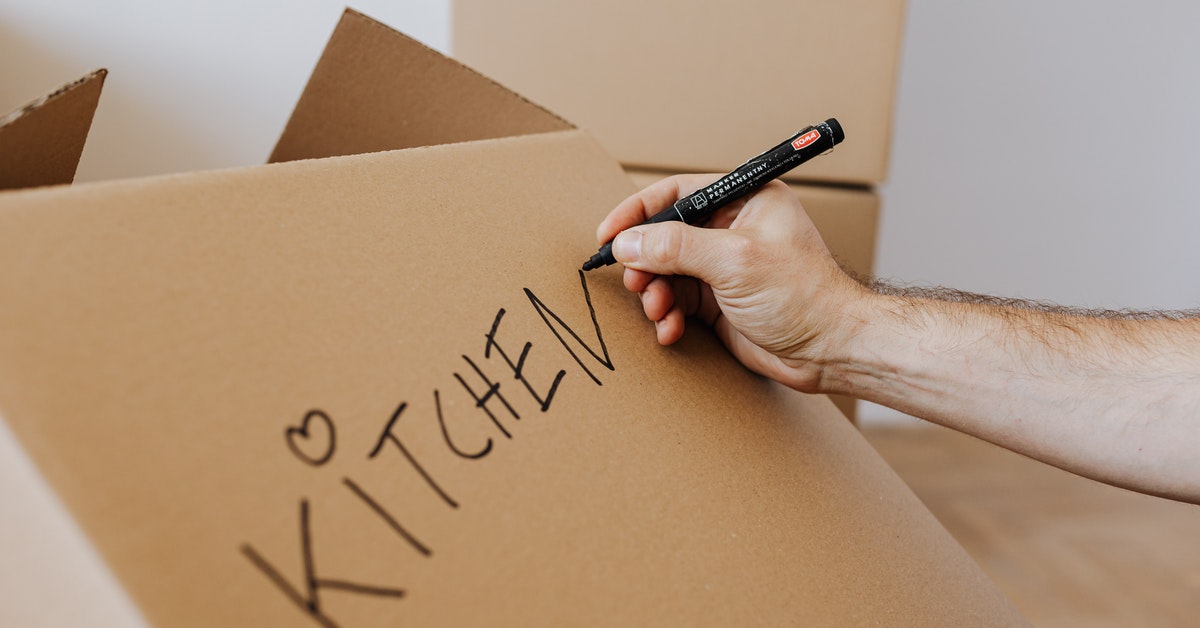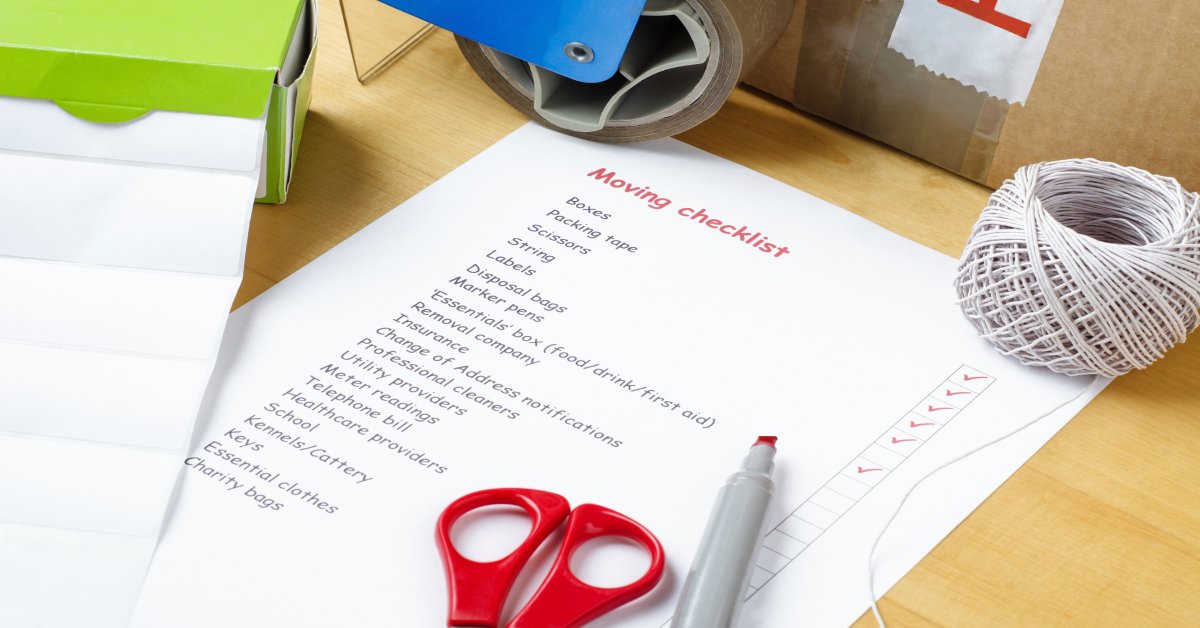To say the least, the day of moving is definitely a process. Depending on how prepared you are, it can either be exciting or stressful. Understanding what to do on moving day can help relieve stress and save you both money and time.
Inasmuch as no two moves are ever the same, in this blog, we’ll provide you helpful tips on what exactly you should expect during the big day. and as OmniKey Realty points out, after your moving day, property management can help as well.
Tip #1: Get yourself ready
By now, everything should be already packed, even the essentials. If you had your items packed by professional packers, then ensure that the loaders will have access to the boxes. So, get them outside for easier loading onto the moving truck.
Also, the home you’re moving into should also have been cleaned up.
Tip #2: Make yourself available
Devote all your attention to the moving process. Therefore, ensure you have no other responsibility at least during both the move-out and move-in days. This will help ensure you are present to properly coordinate the process.
One of the best ways to relieve stress during a moving process is by not having so many distractions. If the mover has to hunt you down to ask for something, then that is a recipe for a stress-filled move.
Plenty of time will be wasted, and that could end up costing you money in the long-run. So, during the D-Day, make sure you allocate all your time in making sure the moving process goes as smoothly as possible.
Tip #3: Have someone watch over your kids
Children and moving don’t mix. Ideally, have your kids out of the house during the day of moving. But if that’s not possible, then ensure your kids (as well as your furry friends) are somewhere safe and free from major entry points.
With everything that takes place during a move, it can be dangerous for both the moving team and your kids. And remember, the goal of the team is to move things as quickly, efficiently, and as safely as possible.

But when they are carrying bulky items, it may be difficult for them to spot a child or even a toy that was left on the walkway. So, during the moving day, it’ll be in your best interest to keep everyone safe by ensuring your kids don’t impede the work of the moving team.
Tip #4: Avoid interrupting the moving team
Try to minimize your suggestions and interruptions as much as possible, as the moving team never wants to be seen as impolite or even rude. Just let them do their work, after all, they are professionals and know what’s needs to be done.
The only exception is if you spot a serious issue. For instance, you see something valuable not packed properly.
Everything will move much quicker and efficiently if you accept that they are professionals and know what they are doing.
Tip #5: Provide the moving team with refreshments
Moving can, without a doubt, be exhausting. By providing the moving team with some refreshments and snacks, it can not only help make the move faster, but it can also make them appreciative.
When moving within shorter distances, bottled water, and some snacks can suffice. However, when moving over long distances, for example, from one state to another, then it may be a good idea to provide them full meals.
Tip #6: Know where everything goes
Be organized, and know where each box will be going. The last thing your movers will want to hear is you don’t know where they should put things into your new home.

That’s why it’s always important to mark each box before they are loaded onto the truck. This will help make it easier for your moving team to know where each item is destined.
Tip #7: Have adequate moving personnel
How many movers you have should be directly proportional to the task at hand. If you are moving from a one-bedroom house, then two movers will likely suffice. If, however, moving from a larger home, say, a four-bedroom home, then you will probably need about five people.
That’s why it’s important to know what to expect from the moving company during the D-Day. Such details may include, what time to expect them, how many people will be helping with the move, and how long the process is expected to take. Knowing all the tidbits of information will help you prepare adequately for the move and help avoid surprises.
Tip #8: Understand your role during the moving process
Most moving companies assign a foreman for every move. The role of the foreman is to direct the moving personnel to ensure everything goes where it needs to go.
Inasmuch as they are moving your stuff, under no circumstances should you bark orders at the moving team. If you have a specific request, always make sure to speak with the foreman.
Tip #9: Know what to do if the moving team arrives late
It may be possible that the moving team may arrive late. It may be due to traffic, mechanical issue, or even bad weather. Regardless, though, make sure to keep your cool when that happens.
If you’ve hired a reputable and experienced moving company, the manager will most likely compensate you for the hassle.
Some people tend to get frantic and stress themselves out. As moving is already stressful, try as much as possible to keep yourself together while seeking a solution to any hiccup that may occur.
Tip #10: Consider tipping the moving team

Tipping is not an obligation, it is an option. On average, movers get paid anywhere about $15 to $17 an hour. Therefore, any tip that you provide them will certainly be appreciated.
That said, you should only consider doing that if they did their job well.
If they slacked on their job and didn’t meet your expectations, then by all means don’t do it.
So, how much should you tip your moving crew? Well, generally speaking, for half-day of work, consider tipping each mover $25. For a full day’s work, dig deeper and tip each mover $40. And in case the move was complicated, consider tipping anywhere between $50 and $70.
Tip #11: Know what to do if you receive shoddy work
It isn’t uncommon to meet movers that are impolite or are just bad at their job. If you ever find yourself in such a situation, the first thing to do is to speak with the moving coordinator/foreman. Let them know and handle the issue, as they probably know their crew better than you do.

If you hired a high-quality moving company, then they will probably handle the issue by replacing the person and providing you a formal apology. You may also have the option to cancel the move altogether and find an alternative solution.
Tip #12: Know what to do in case of property damage
Accidental damage is also not uncommon during a move. A moving person may lose control when moving down the staircase and damage some valuable items. If that happens, stay as calm as possible. That’s because any damage that moving companies make will probably be refunded to you.
Moving firms are usually required by law to have proper insurance that covers property damage during a move.
To have some proof of the damage, quickly document the damage by taking photos. Next, get in touch with the moving company and begin the claiming process.
Tip #13: Let your neighbors know

You also want to let your neighbors know of your intended move a day or two before the moving day. That’s because moving is usually noisy and disruptive. A neighbor may also have parking objections and that may become an issue for your moving team.
Tip #14: Make sure to provide an accurate inventory
A moving inventory is a list of items that are to be transported from one place to another. Having one will help you stay organized.
You can, for instance, easily decide which items are going and which ones you’ll discard or donate. Additionally, having an inventory helps in knowing just how much the moving will cost you.
Hire a Reputable Moving Company
To ensure the moving is as successful as possible, make sure to hire the right moving company. The right company will not only put you at ease but will also ensure the move is smooth and stress-free.
The following are some questions to help you in this regard:
How much will the moving cost?
Are there any additional fees I should know about?
Do you subcontract your work?
Is your moving company insured?
Do you provide storage or packing services?
Does your company have all the licenses?
Do you have all the necessary equipment?
Can you provide references?
Are you running any promotions?
Knowing what to expect during the day of moving will help ensure things go according to plan. But remember, hiring the right company is key.
So, make sure to do your due diligence prior to signing on the dotted lines.


